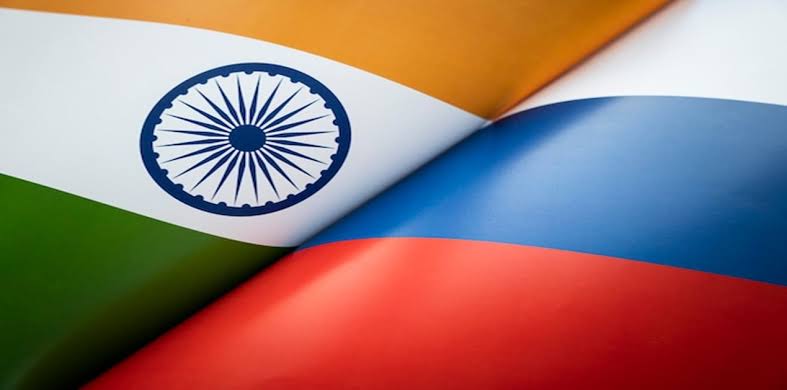Russian Ambassador Denis Alipov has strongly criticized NATO Secretary General Mark Rutte for making comments that appeared to threaten India with full secondary sanctions over its continued energy trade with Russia.
Harsh Criticism from Russian Diplomat Over NATO Remarks
The remarks have drawn public attention and sparked debate over NATO’s role in global economic policies, especially concerning countries that are not part of the alliance.
In an opinion piece published in a national newspaper, Alipov asked why the head of a military alliance, based in the transatlantic region, was making statements related to American sanctions. He questioned whether Rutte was stepping beyond his authority and acting like an economic enforcer on behalf of the United States.
Alipov called Rutte’s stance “glaring hypocrisy” and accused NATO of holding double standards. According to him, many Western countries still continue to purchase Russian energy, yet they are trying to stop others — like India — from doing the same. He argued that this is not about fairness but about shifting the burden of restrictions onto countries outside NATO.
Alipov also criticized NATO’s position as outdated and colonial. He wrote that treating India as if it could be dictated to, much like how the Dutch East Indies was controlled during colonial times, was completely unacceptable in today’s global system. His comments referenced the tone and posture of NATO’s approach, which he said ignored India’s sovereignty.
🧊 Arctic power play erupts — Russia exploits Greenland dispute to challenge NATO in Svalbard
Russia-India Energy Trade Defended as Legal and Essential
In his detailed statement, Ambassador Alipov defended the energy trade between Russia and India. He described the relationship as legal, transparent, and mutually beneficial. Russia is India’s fourth-largest trade partner, with oil forming a key part of that relationship.
Alipov explained that Russian crude oil is shipped to India, refined locally, and used for both domestic purposes and export. He emphasized that this trade supports energy needs, creates jobs, and brings in revenue through exports, helping India maintain its economic stability.
He said that attempts to interfere with this trade—whether through political pressure or financial restrictions—are aimed at harming Russia indirectly by hurting its trading partners. According to him, this kind of pressure from NATO is not about helping Ukraine or maintaining global order. Instead, it is about forcing countries to choose sides in a conflict where they may not be involved.
Alipov highlighted the recent actions by the European Union against Nayara Energy, one of India’s major refiners. The company was included in the EU’s 18th sanctions package against Russia. The move, Alipov suggested, is another example of NATO and its allies trying to break existing economic ties under the banner of political goals.
He wrote that NATO’s leaders are trying to punish Russia by disrupting its economic connections, but in doing so, they are also targeting neutral nations. This, he argued, is not only unfair but harmful to countries like India, which rely on such partnerships for essential goods and services.
India Pushes Back, Questions NATO’s Global Role
India’s Ministry of External Affairs (MEA) responded firmly to the recent developments. In a public statement, the MEA said that India does not follow or recognize any unilateral sanctions that are not approved by the United Nations Security Council. This stance reaffirms India’s position of neutrality in international conflicts and its long-standing commitment to independent foreign policy decisions.
🎯 China’s masterstroke? NATO warns Beijing may push Russia to open new front
The MEA’s response was in line with the criticism raised by Ambassador Alipov, who also questioned NATO’s growing involvement in global matters that fall outside its traditional scope. He accused NATO of expanding its pressure tactics beyond its own territory and into regions where it has no jurisdiction or authority.
Alipov suggested that instead of examining its own role in the ongoing conflict in Europe, NATO has chosen to spread its policies and restrictions into Asia. He described this as a deliberate effort to extend influence and apply pressure on neutral or non-aligned countries.
He further commented that NATO’s approach in Europe, especially its response to Russia’s stated security concerns, has already contributed to the current conflict. Now, he claimed, similar tactics are being used in other regions under the pretext of upholding international rules.
The Russian envoy’s statement came during a time of rising global tension, with sanctions, military exercises, and diplomatic warnings becoming more frequent. While his remarks were targeted at NATO and its leadership, they also reflected a broader debate about the role of military alliances in influencing international economic and political decisions.
No further public comment has been made by NATO Secretary General Mark Rutte following the Russian ambassador’s remarks.

